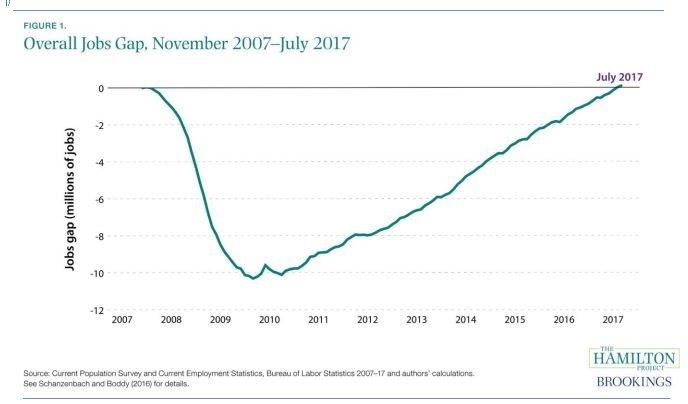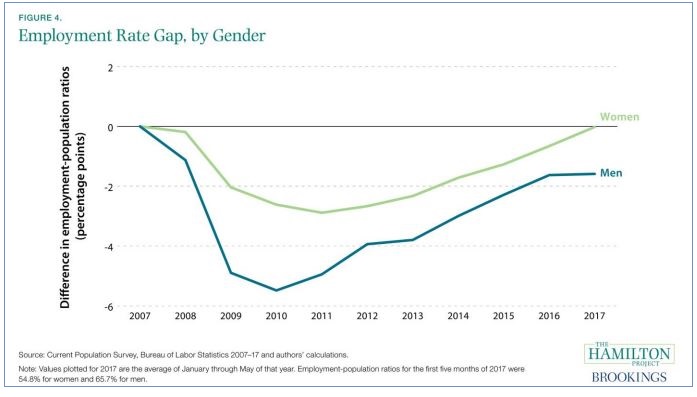A new report by the Hamilton Project at the Brookings Institution has good news: "With [yesterday's] employment report, we can report that the national jobs gap relative to November 2007 has closed (see figure 1).
"This indicates that, by our calculations, nearly a full decade after the start of the recession, employment has returned to its demographically adjusted pre-recession level. This does not mean that all harm to the labor market resulting from the Great Recession has dissipated, nor that the economy is at full employment. It does mean, though, that the economy has added enough jobs to make up for the losses during the Great Recession."
It took a decade to repair most of the damage caused by the Great Recession, but there are still scars that haven't healed. During the recession, the country shed about 8.5 million jobs. Over the past 10 years, the labor market added 10 million jobs, which accounts for the growth in population. Those jobs closed the gap.
But not everyone is a winner in the post recession job market. Many of the jobs in the 25-54 demographic -- part-time, low-wage, 'gigs' -- reflect a weak labor market. But an uptick in the 55 and older group helped close the overall gap. Still, other groups are on the losing end, including men. The report says:
"The employment rate gap recovery has been uneven in other respects: notably, women have outperformed men. Two male-dominated occupation groups—production and construction—were particularly hard hit during the Great Recession. Employment in these occupations remains low relative to other occupations, contributing to weaker employment growth for men over the last ten years.
"In addition, the employment rate of men aged 25 to 54 had been falling for several decades prior to the Great Recession, driven by forces that are still not entirely understood, but possibly contributing to the disparities between the employment trajectories of men and women."
The Hamilton Project has some surprising data on race as well. "While whites were less hard hit in the immediate aftermath of the Great Recession than blacks and Hispanics, their recovery has been slower; whites are now in a worse position relative to their pre-recession employment rates than are blacks and Hispanics."
Click here for the full report.






